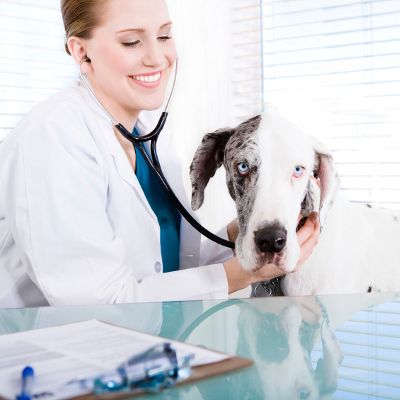 What is leptospirosis and where is it found?
What is leptospirosis and where is it found?
Leptospirosis is caused by a bacteria found worldwide that causes disease in dogs and other animals as well as people. It's more common in certain areas of the country, but it survives best in warm, wet climates and in areas with standing water, such as muddy spots or ponds at the dog park. It can occur in both the country and the city and can be spread by wildlife including rodents in the inner city.
How is leptospirosis spread?
Leptospirosis is spread through exposure to infected urine of wild animals or dogs. The bacteria can enter the body through open cuts or wounds in the skin, through contact with mucous membranes (i.e. the mouth or eyes), or swallowing water with contaminated urine.
What does leptospirosis do to my pet?
Leptospirosis can cause damage to multiple organ systems resulting in a variety of clinical signs. The main organ systems affected include the liver and kidneys. The bacteria cause damage to the organs resulting in liver or kidney failure. Leptospirosis can also affect the vascular system resulting in vasculitis, leakiness of the vessels. Symptoms could include fever, lethargy, vomiting, weakness, anorexia, or malaise.
Can cats get leptospirosis?
Cats appear to be less susceptible to leptospirosis infection than dogs and do not generally get sick from it.
Can people get leptospirosis?
Unfortunately, people can become infected with and get sick from leptospirosis. Most infected people acquire the disease from exposure to bacteria in the environment. The bacteria are spread primarily through urine so people should avoid contact with infected urine when possible.
If your dog develops leptospirosis, your veterinarian will help guide you through the precautions you should take at home. Veterinary staff should also take precautions when handling pets with possible leptospirosis, and most veterinary hospitals have systems in place to protect their staff. Fortunately within a couple of days of starting antibiotics, the bacteria will stop shedding into the urine and the risk of exposure becomes less.
 How is leptospirosis diagnosed?
How is leptospirosis diagnosed?
Leptospirosis is typically diagnosed by either polymerase chain reaction (PCR) testing or by testing blood samples for antibodies against the bacteria. The PCR test is testing for components of the organism while the antibody test is looking for the immune system's reaction to the organism.
The PCR test is more likely to give a positive result within the first few weeks after your pet has been exposed to the bacteria and the antibody testing will be positive after several weeks. The PCR test is most accurate before antibiotics have been given because the organism is cleared from the system fairly quickly once antibiotics are started. The antibody testing is affected by vaccines and will show a low positive result if your dog has been recently vaccinated.
Leptospirosis will not grow on standard urine cultures, so cultures are not typically used to diagnose it. Your veterinarian will weigh the pros and cons of the different test methods and decide which test is best in your dog's case. In some cases, both PCR and antibody testing or repeat antibody testing will be necessary to obtain a diagnosis.
How is leptospirosis treated?
Leptospirosis is treated with antibiotics like amoxicillin, doxycycline and several others. If an antibiotic in the penicillin family is used in the early stages of treatment, it is generally followed up with doxycycline to kill the carrier state of the infection.
What is the prognosis?
The prognosis with leptospirosis infection depends on the severity of the organ damage. Some dogs become severely ill and may require extended hospital stays with aggressive therapy in the intensive care unit, while others may develop mild disease and respond to antibiotics at home. In some cases, the kidney damage can be so severe that dialysis is the best option. Aggressive treatment options like dialysis are not for everyone due to limited availability and expense.
How can I prevent leptospirosis?
There is a vaccine for leptospirosis that can help to prevent its spread. The vaccine covers some but not all of the different strains of leptospirosis. Contact your veterinarian to determine whether the leptospirosis vaccine might be a good choice for your pet. Watch for the signs of leptospirosis and keep your dog away from standing water.






